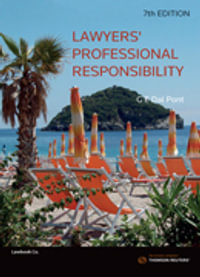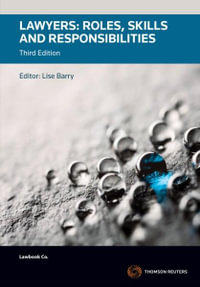For more than a decade, American lawyers have bewailed the ethical crisis in their profession, wringing their hands about its bad image. But their response has been limited to spending money on public relations, mandating education, and endlessly revising ethical rules. In this book, Richard Abel will argue that these measures will do little or nothing to solve the problems illustrated by the six disciplinary case studies featured in this book unless the legal monopoly enjoyed by attorneys in the U.S. is drastically contracted.
Richard Abel examines some of the most common ethical complaints made about lawyers in Lawyers in the Dock. Using detailed records of disciplinary proceedings, he describes the actions surrounding certain cases based on three of the most common complaints: neglecting the client by failing to pursue cases diligently; overcharging of clients by mystifying billing practices; and betraying adversaries and courts out of excessive loyalty to clients or causes.
In this book, Richard Abel will argue that these measures will do little or nothing to solve the problems exposed by his six disciplinary case studies unless structural changes are made to the legal monopoly in order to restore the public trust in lawyers. Lawyers in the Dock is essential reading for lawyers, law students, and potential clients who wish to restore trust and professional responsibility in the legal profession.
Industry Reviews
"Richard Abel has produced an interesting and provocative book. Anyone interested in the nature of lawyers' work, and the problems lawyers can create for themselves in carrying out that work, will be interested in what Abel shows in his case studies."
-Law and Politics Book Review, June 2009
"Drawing on detailed records of six disciplinary proceedings and on an extensive body of theoretical literature, Abel considers the structural causes of systemic moral failure in the legal profession. He argues that typical measures to deal with ethical lapses by lawyers are ineffective and concludes that the monopoly power enjoyed by attorneys in the United States must be drastically contracted."
-Law & Social Inquiry, Fall 2009

























